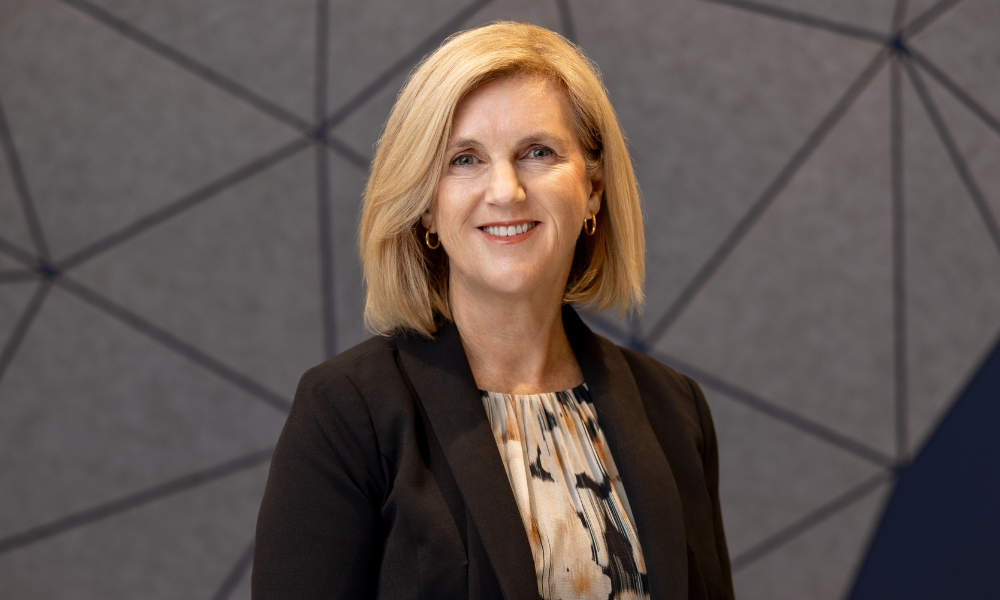
CPO Bernadette Cavanagh to host Fireside Chat at National HR Summit Australia in March

“The best HR professionals I know have actually stepped out of HR at various points in their career and taken on complex projects and business challenges,” says Bernadette Cavanagh, CPO at NSW Land Registry Services, who urges HR to be future ready as organisations navigate changing times.
“As HR professionals, we need to jump into opportunities when they’re offered to us because if we don't understand the business, then how could we possibly build a people culture to support it?”
Being given opportunities to spend time in operations has been crucial to her own career, says Cavanagh.
“I would strongly urge HR when they see opportunities to get involved or make it really clear to those who lead you that you're ‘up for the challenge’, you're up to learn, and are absolutely passionate about continual growth.”
Adaptability and agility are vital for HR in the post-pandemic environment, says Cavanagh, who will be hosting a fireside chat on the topic of the future of HR at the upcoming National HR Summit Australia in Sydney this March.
“The conversation around the future workplace is going to involve us getting back to the core of who we are and how we deliver for our business’ purpose,” she says.
“Organisations are continually transforming but one absolute certainty is that in HR, our ability to adapt, to learn and take information, and to use data to inform what we're doing – that’s going to be crucial. We need be looking at trends to stay relevant, to understand the purpose of our business and how we produce results. That will mean we can contribute to the discussion in a really strategic way.”
Ensuring people strategies are aligned with the organisation’s purpose is crucial, says Cavanagh.
“It's been said for some time HR needs a seat at the table. HR’s got a seat at the table, we just have to use it. We have to be as valuable to our CEO as the CFO. If you're not, then something's wrong.
“If we’re going to be strategic partners, we need to be business people, not just people people.”
Understanding changes in worker expectations will also be key to helping equip organisations for what lies ahead, she says.
“I don't believe the future of work post-Covid is a fixed model. It will involve all sorts of variations along the hybrid spectrum and will be dependent on what that organisation needs to deliver.”
The challenge will be to help steer the movement in the right direction, says Cavanagh, indicating how it could easily it go off course.
“I feel like the conversation around the future workplace is being dominated by wants, rather than really looking at what we're achieving as an organisation, what our purpose is, and really getting back to that core of who we are and how we deliver for that purpose.
“People have reassessed their values and they're very active in determining what type of workplace they want to be a part of. If they sense that that purpose doesn't have meaning for them, they will look elsewhere.”
A key for HR, she says, is to curate a workplace that inspires those within it and delivers for the organisation.
“We need the type of flexibility that works for our employees, but that also works for our boards, works financially if we're in a commercial organisation, or works for the purpose itself.”
That might mean our workplaces look quite different, says Cavanagh.
“Some might have one set of hybrid arrangements and others don't at all because of the nature of the work they do. That brings complexities and challenges in terms of feelings of equity.
“It might also mean that the tools we use also need to continue to evolve and change.”
The rapid development in these tools and the digital landscape continues to markedly impact this approach, she says.
“We play a significant role in making sure our workforces are continually learning and adapting and are able to engage with new technologies. That counts for all of our workforce.
“I have recently seen roles that have been deleted because of technological change. The deletion of a role shouldn't mean the deletion of an employee though. We should have adaptability that allows the employee to grow into the new space, be it technologically enabled or not.”
Other key issues for HR to embrace in the near future are those of diversity, as well as all aspects of safety – especially psychological safety, says Cavanagh.
“I actually don’t believe we know what the modern workplace is going to look like in five years’ time. I do think we’re going to keep trialling new ways though. HR’s resilient in dealing with change. Covid proved that.
“We didn't all go home to work for nearly two years because we planned it as an intentional strategy - and yet we were successful.”